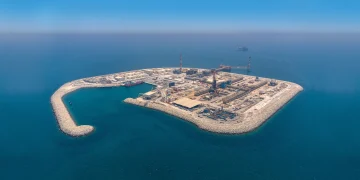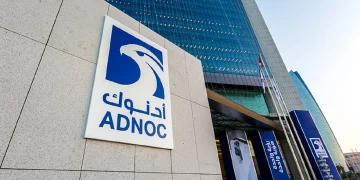CNBC: ADNOC to Spend $1 Billion a Month on Fossil Fuels, According to Global Witness Research

CNBC has exclusively received a new analysis from Global Witness, an international non-governmental organization, that says UAE oil giant ADNOC, led by Sultan Al Jaber, who is also president of the COP28 climate conference, plans to spend an average of $1.14 billion a month just on oil production and gas until 2030, the same year in which the UN says the world must cut emissions by 45% to avoid a global catastrophe.
By 2050, when the UN says the entire global economy should reach zero emissions, ADNOC is projected to invest $387 billion in oil and gas.
That’s almost seven times its commitment to decarbonization projects over the same period, Global Witness said in a study.
ADNOC, which recently announced plans to achieve zero emissions by 2045, disputes Global Witness’s analysis and says the assumptions made are inaccurate.
An ADNOC spokesperson told CNBC: “The analysis and assumptions made regarding ADNOC’s capital expenditure program beyond the company’s current five-year business plan (2023-2027) are speculative and therefore incorrect.”
In January of this year, the Abu Dhabi Energy Group announced that it would commit $15 billion to investments in “low-carbon solutions” by 2030, including investments in clean energy, carbon capture and storage projects, and electrification projects.
Global Witness arrived at its forecasts based on an analysis of ADNOC’s forecast oil and gas capital expenditures, exploration capital expenditures and operating expenses for the period 2023 to 2050. The data was taken from the UCube database of Rystad Energy.
Speaking earlier this year, Sultan Al Jaber said that the top priority of the COP28 summit would be to continue the fight to limit global warming to 1.5C.
The Paris Agreement aims to limit global average temperature rise to 2°C above pre-industrial levels and to continue efforts to limit global warming to 1.5°C. Beyond the critical temperature threshold of 1.5 degrees Celsius, it becomes more likely that small changes can cause dramatic changes throughout the Earth’s life support system.
The International Energy Agency says no new developments in oil, gas or coal are compatible with the goal of keeping global warming to 1.5 degrees Celsius.
“All current energy transition scenarios, including those developed by the IEA, show that some level of oil and gas will be needed in the future,” an ADNOC spokesman said in response to a CNBC request for comment.
“So it is important that, in addition to accelerating investment in renewable energy and low-carbon energy solutions, we look at the least carbon-intensive sources of oil and gas and further reduce their intensity to ensure a fair, equitable, orderly and responsible energy. This is the approach that ADNOC uses,” an ADNOC spokesperson told CNBC.
“As we reduce emissions, we are also ramping up investments in renewable energy and zero-carbon energy like hydrogen for our customers,” the ADNOC spokesperson added.
A separate report released last April by Global Witness and Oil Change International said the world’s top 20 oil and gas companies are projected to spend $932 billion to develop new oil and gas fields by the end of the decade, CNBC reported.






